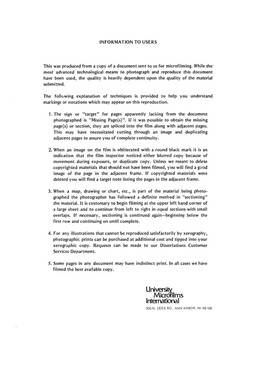| dc.contributor.author | Carter, Chris Allen. | en_US |
| dc.date.accessioned | 2013-08-16T12:28:29Z | |
| dc.date.available | 2013-08-16T12:28:29Z | |
| dc.date.issued | 1982 | en_US |
| dc.identifier.uri | https://hdl.handle.net/11244/4951 | |
| dc.description.abstract | In recent years Kenneth Burke has come to speak of his own work as the science of "logology, " by which he means words used to chart the general principles of word-use. Perhaps the best introduction to Burke is what he calls his "logological definition of humankind, " as presented at the opening of his Language as Symbolic Action. My third chapter elaborates the five clauses of Burke's definition as a way of illustrating his theories concerning the symbolical, negativistic, synedochical, hierarchical, and entelechial characteristics of human language. | en_US |
| dc.description.abstract | Now I argue that the second of these five notions is the key to Burke. I start my seventh chapter with Burke's theory of linguistic negation, a theory to the effect that words are formed as categories defined by what they are not. I then proceed to show how these diacritical differentiations are pressured by conflict and change, are influenced by a sense of beauty, are morally charged, are used both to bond and to bind, and are a mode of survival. What develops is the Burkean picture of language as a system with diacritical, dialectical, esthetic, ethical, rhetorical, and pragmatic dimensions. Since the Saussurean picture of language also focuses on relational meaning, I preface my long chapter on Burke with a chapter on the structuralist theory of diacritical differentiation. Since both Burke and the structuralists take a more or less synchronic approach, I preface both with the diachronic approach of a number of writers on human evolution. And, since the Burkeans, the structuralists, and the evolutionists alike stress some form of negation as the distinctively human contribution, I introduce all three with a short chapter on the seeming ubiquity of such "negationist" ideas. | en_US |
| dc.description.abstract | Because Burke's theory of the language process is also a theory of social process, I conclude by collecting all the Burkean principles I have treated and, in my ninth chapter, using them to analyze the social dynamics flowing around us. Do not give up on my dissertation before you have reached the place where, special vocabulary and all, I push Burke's linguistics to sociolinguistics and combine his ideas with those of Ernest Becker. My last chapters suggest slight modifications to Burke's "logological definition" and speculate on how, over the course of time and through developing stages of the technology of communication, the language system has been trying to reveal in narrative these same sociolinguistic truths that Burke has revealed philosophically. | en_US |
| dc.format.extent | ix, 289 leaves ; | en_US |
| dc.subject | Literature, General. | en_US |
| dc.title | The sociolinguistics of Kenneth Burke. | en_US |
| dc.type | Thesis | en_US |
| dc.thesis.degree | Ph.D. | en_US |
| dc.thesis.degreeDiscipline | Department of English | en_US |
| dc.note | Source: Dissertation Abstracts International, Volume: 43-02, Section: A, page: 0439. | en_US |
| ou.identifier | (UMI)AAI8215785 | en_US |
| ou.group | College of Arts and Sciences::Department of English | |
